|
| Climate Change Symposium |
| Wednesday, October 7, 2020 |
| 9:30 AM–10:30 AM EDT |
| Online |
| Domain: Systems |
| Chair: Mark A. Mattaini (Jane Addams College of Social Work-University of Illinois at Chicago) |
| CE Instructor: Mark A. Mattaini, Ph.D. |
| Abstract: This symposium will present topics related to the options we have in facing the intensifying dangers of global warming. Presenters will discuss community interventions as well as the existing research and empirical knowledge that may inform our intervention. Behavioral scientists dedicated to the mission of science for a better world will discuss how we can begin working to preserve the precious resources and planet we inhabit. |
| Instruction Level: Intermediate |
| Learning Objectives: At the conclusion of the presentation, participants will be able to: (1) describe key features of “sticky” interventions related to global warming that persist over time and enable their expansion to large populations; (2) outline assessment of communities now suffering from climate disasters and the features of their cultural contingencies that influence their resilience; (3) describe organizational design principles governing collective action relevant to managing common pooled resources that promote valuing of natural resources over unchecked consumption; (4) name at least three ways in which communities can reduce greenhouse gas emissions; (5) describe experimental methods for assessing the impact of community interventions on greenhouse gas emissions; (6) describe a strategy for organizing an entire community to comprehensively address the problem of reducing greenhouse gas emissions. |
| |
Reviewing Experimental Research on Reducing CO2-Emissions |
| MAGNUS JOHANSSON (Oslo Metropolitan University) |
| Abstract: The Climate Change Task Force of the Behavioral Science Coalition is conducting a systematic review of experimental research to reduce carbon dioxide emissions and this presentation will outline the results. The scope of the review is partially based on Hawken’s (2017) list of highest impact areas, where electricity, food and refrigeration dominated the top 10. Searches were conducted in two databases to find research targeting communities, households, organizations and policy initiatives, while also mapping sources of funding and research institutions involved in relevant research on climate change. The outcome of this review will be a useful reference for anyone seeking to contribute significant work in reducing our carbon footprints and move towards a sustainable world. |
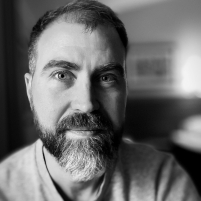 Magnus Johansson is a licensed psychologist, former CEO of a private care organization, with 10 years of experience working as a consultant, primarily with leadership and organizational development. He has also done work in prevention, creating a cultural adaption and pilot trial of the PAX Good Behavior Game in Sweden. In 2017, Magnus initiated a research project to develop a measure of Nurturing Work Environments, and to investigate the effects of using evidence-based kernels to improve nurturance. He is a founding member of the Climate Change Task Force of the Behavioral Science Coalition. Magnus Johansson is a licensed psychologist, former CEO of a private care organization, with 10 years of experience working as a consultant, primarily with leadership and organizational development. He has also done work in prevention, creating a cultural adaption and pilot trial of the PAX Good Behavior Game in Sweden. In 2017, Magnus initiated a research project to develop a measure of Nurturing Work Environments, and to investigate the effects of using evidence-based kernels to improve nurturance. He is a founding member of the Climate Change Task Force of the Behavioral Science Coalition. |
| |
Community Interventions: One Strategy for Reducing Greenhouse Gas Emissions |
| ANTHONY BIGLAN (Oregon Research Institute) |
| Abstract: Community interventions have the potential to accelerate the reduction in greenhouse gas emissions. Much of the research on reducing individual, household, and organizational emissions has focused on only one of these entities. However, a comprehensive multi-sector community effort has the potential to promote synergies that increase impact in each sector. For example, a school-based intervention that is designed to foster parent-child discussion1 of climate change could influence parents to become more favorable to proposed policy changes in their workplace and their community. This presentation will provide a brief overview of the state of empirical knowledge about community interventions to affect GHG emissions. It will also address the methodological issues involved in experimentally evaluating comprehensive community interventions to reduce GHG emissions. |
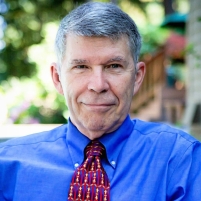 Anthony Biglan, Ph.D., is a Senior Scientist at Oregon Research Institute. He is the author of The Nurture Effect: How the Science of Human Behavior Can Improve our Lives and Our World. Dr. Biglan has been conducting research on the development and prevention of child and adolescent problem behavior for the past 30 years. His work has included studies of the risk and protective factors associated with tobacco, alcohol, and other drug use; high-risk sexual behavior; and antisocial behavior. He has conducted numerous experimental evaluations of interventions to prevent tobacco use both through school-based programs and community-wide interventions. And, he has evaluated interventions to prevent high-risk sexual behavior, antisocial behavior, and reading failure. In recent years, his work has shifted to more comprehensive interventions that have the potential to prevent the entire range of child and adolescent problems. He and colleagues at the Center for Advanced Study in the Behavioral Sciences published a book summarizing the epidemiology, cost, etiology, prevention, and treatment of youth with multiple problems (Biglan et al., 2004). He is a former president of the Society for Prevention Research. He was a member of the Institute of Medicine Committee on Prevention, which released its report in 2009 documenting numerous evidence-based preventive interventions that can prevent multiple problems. As a member of Oregon’s Alcohol and Drug Policy Commission, he is helping to develop a strategic plan for implementing comprehensive evidence-based interventions throughout Oregon. Anthony Biglan, Ph.D., is a Senior Scientist at Oregon Research Institute. He is the author of The Nurture Effect: How the Science of Human Behavior Can Improve our Lives and Our World. Dr. Biglan has been conducting research on the development and prevention of child and adolescent problem behavior for the past 30 years. His work has included studies of the risk and protective factors associated with tobacco, alcohol, and other drug use; high-risk sexual behavior; and antisocial behavior. He has conducted numerous experimental evaluations of interventions to prevent tobacco use both through school-based programs and community-wide interventions. And, he has evaluated interventions to prevent high-risk sexual behavior, antisocial behavior, and reading failure. In recent years, his work has shifted to more comprehensive interventions that have the potential to prevent the entire range of child and adolescent problems. He and colleagues at the Center for Advanced Study in the Behavioral Sciences published a book summarizing the epidemiology, cost, etiology, prevention, and treatment of youth with multiple problems (Biglan et al., 2004). He is a former president of the Society for Prevention Research. He was a member of the Institute of Medicine Committee on Prevention, which released its report in 2009 documenting numerous evidence-based preventive interventions that can prevent multiple problems. As a member of Oregon’s Alcohol and Drug Policy Commission, he is helping to develop a strategic plan for implementing comprehensive evidence-based interventions throughout Oregon. |
| |
Behaviors and Practices Relevant to Prevention and Resilience |
| MARK ALAVOSIUS (Praxis2LLC) |
| Abstract: Individual behaviors and organizational practices that slow, prevent or adapt to global warming entail much behavior change from “business as usual”. It is clear that greenhouse gas emissions continue despite efforts under the Paris Accord to reduce them. We have not stopped/reversed warming and time is running out. A challenge to constraining ourselves to address climate change is increasing the current value of those behaviors to individuals, organizations and communities and fostering consideration of their value to future generations. A framework for governing consumption to preserve natural capital for future generations might consider how climate impacts affect communities, how those suffering now respond to climate crises and what agencies determine needed “sticky” interventions that persist over time and attract others to invest in their expansion. Central to preparation of curricula topics for what lies ahead are (1) assessments of communities now suffering, (2) understanding principles governing collective action, (3) interventions and policies that define contingencies and (4) organizational models that promote valuing of natural resources over unchecked consumption. |
 Mark P. Alavosius, Ph.D. is President of Praxis2LLC, providing behavior science applications to high performance organizations and a graduate faculty in psychology (Behavior Analysis Program) at the University of Nevada, Reno. He was a faculty member in psychology at Western Michigan University and West Virginia University. He earned his BA from Clark University (1976) MS (1985) and Ph.D. (1987) in Psychology from the University of Massachusetts at Amherst. He is an associate editor of the Journal of Organizational Behavior Management and on the editorial board of Behavior and Social Issues. He was president of the Nevada Association for Behavior Analysis and program coordinator for the CSE (Community, Social, Ethics) area of ABAI. He helped found BASS (Behavior Analysis for Sustainable Societies – an ABAI special interest group) and served as the first BASS chairperson. He has been a Trustee of the Cambridge Center for Behavioral Studies for many years and chaired their Commission for the Accreditation of behavioral safety programs from 2010-2016. He continues to serve as a CCBS commissioner for accreditation of behavior-based safety applications. His interests include transferring behavior science to advance socially valid outcomes in organizations and developing behavioral systems to improve work performance in the areas of health, safety and the environment. Dr. Alavosius was Principal Investigator of two Small Business Innovations Research Grants from CDC/NIOSH to test behavioral safety technologies for small employers. Since the 1980s, Dr. Alavosius has provided over 230 publications and conference presentations. |
|
| |
| |
|
| Behavioral Science and Community Health Improvement |
| Wednesday, October 7, 2020 |
| 11:00 AM–12:00 PM EDT |
| Online |
| Domain: Systems |
| Chair: Mark A. Mattaini (Jane Addams College of Social Work-University of Illinois at Chicago) |
| CE Instructor: Mark A. Mattaini, Ph.D. |
| Presenting Author: VINCENT FRANCISCO (University of Kansas) |
| Abstract: While the field of applied behavioral science has provided many solutions for individual-level behavior change, much work is left to be done to ensure that these interventions and strategic approaches reach their potential to improve population-level health impacts. This presentation will focus on the advantages of integrating three seemingly disparate fields—behavioral science, community psychology and public health. By integrating key aspects of these fields of study, we can take advantage of the key strengths of each field and fulfill the promise of applied behavior analysis in creating a context which is more successful than before. Theoretical underpinnings of this approach will be presented, and examples of successful adaptation and intervention will be provided. |
| Instruction Level: Intermediate |
| Learning Objectives: At the conclusion of the presentation, participants will be able to: (1) identify the issues related to understanding the influence of culture on behavior; (2) apply behavior analytic principles conceptually at every level of the social ecology; (3) communicate how behavior analysis can expand the science and practice of behavior change to achieve population-level behavior change. |
| |
| VINCENT FRANCISCO (University of Kansas) |
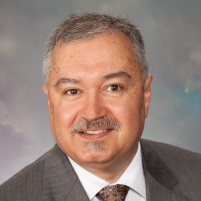 Dr. Vincent Francisco is Kansas Health Foundation Professor of Community Leadership in the KU Department of Applied Behavioral Science, and Director of the Center for Community Health and Development, a World Health Organization Collaborating Centre at the University of Kansas. In his work, he uses behavioral science methods to help understand and improve conditions that affect population health and health equity. He publishes widely in the areas of health promotion, capacity building, and community-based research and intervention. Dr. Francisco is a co-developer of the Community Tool Box, a widely-used Internet-based resource for promoting community health and development.
He brings expertise and experience to implementing community–based research, especially for prevention of HIV and chronic disease. He has years of experience mentoring undergraduate and graduate researchers and practitioners with community-based organizations throughout the United States and abroad. He has experience designing and implementing community-based and participatory HIV and sexual risk reduction interventions since he was a member of the Adolescent Medicine Leadership Group, Chair of the Community Prevention Leadership Group, and a member of the Executive Committee of the NIH Adolescent Trials Network for HIV/AIDS Interventions from 2003 through 2011. He has 11 years of experience in partnering with community-based organizations in North Carolina for applied health promotion research that includes access to care, risk reduction for HIV and sexual risk reduction, as well as capacity building for empowerment of marginalized groups.
In addition, he has considerable experience working in residential and day treatment programs (e.g., Spaulding Youth Center, Rhode Island Hospital), working on primary prevention of youth violence, drug and alcohol use among teens, teen pregnancy prevention, diabetes and cardiovascular disease prevention. He has been a consultant with numerous federal and state agencies on community-based and community-engaged approaches to prevention and treatment of behavioral disorders, and is recognized internationally as a resource among foundations and governmental agencies. |
|
| |
| |
|
| Shared Security: A Vision for Sustainable Peace and Security for All |
| Wednesday, October 7, 2020 |
| 1:00 PM–2:00 PM EDT |
| Online |
| Domain: Systems |
| Chair: Mark A. Mattaini (Jane Addams College of Social Work-University of Illinois at Chicago) |
| CE Instructor: Mark A. Mattaini, Ph.D. |
| Presenting Author: KERRI KENNEDY (American Friends Service Committee) |
| Abstract: People across the world face growing insecurity. Violent conflict is spreading and intensifying, economic inequality is widening, and the climate is in jeopardy. At the same time, never have the fates of individual, communities and nations been so intertwined. And never have our safety and well-being depended so much on the safety and well-being of others. The prevalent narrative that increased militarization equals security leads to increased violence at state, local and individual levels, spreading fear and insecurity, fomenting future violence. In this talk, Kerri will explore Shared Security, our attempt to reframe security as being inclusive and egalitarian and grounded in the wellbeing of people rather than in the interests of nation states. The presentation will cover strategies where individuals and communities were able to use active nonviolence and peacebuilding strategies to reduce conflict, address community trauma associated with violence and to make positive structural changes that promote peace and justice for all. |
| Instruction Level: Intermediate |
| Learning Objectives: At the conclusion of the presentation, participants will be able to: (1) explain how violence affects individual and community health using social and neuroscience; (2) describe non-violent and community engagement models that create positive change; (3) apply best practices for social change and violence reduction. |
| |
| KERRI KENNEDY (American Friends Service Committee) |
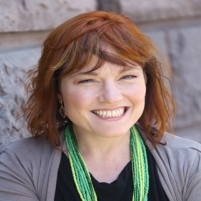 Kerri Kennedy serves as the International Associate General Secretary for American Friends Service Committee (AFSC) overseeing AFSC’s global work in 17 countries. She is a global peacebuilder and international executive with twenty years of experience leading international peace and justice organizations. She has spent her career working to reduce conflict and structural violence globally and to ensure that all have a voice in policy and politics. She is a Truman National Security Fellow, the Vice Chair of the Alliance for Peacebuilding and the co-editor of the book Indivisible: Global Leaders for Shared Security. Kerri Kennedy serves as the International Associate General Secretary for American Friends Service Committee (AFSC) overseeing AFSC’s global work in 17 countries. She is a global peacebuilder and international executive with twenty years of experience leading international peace and justice organizations. She has spent her career working to reduce conflict and structural violence globally and to ensure that all have a voice in policy and politics. She is a Truman National Security Fellow, the Vice Chair of the Alliance for Peacebuilding and the co-editor of the book Indivisible: Global Leaders for Shared Security. |
|
| |
| |
|
| Toward a More Just and Effective Response to Youth Homelessness |
| Wednesday, October 7, 2020 |
| 2:00 PM–3:00 PM EDT |
| Online |
| Domain: Systems |
| Chair: Mark A. Mattaini (Jane Addams College of Social Work-University of Illinois at Chicago) |
| CE Instructor: Mark A. Mattaini, Ph.D. |
| Presenting Author: CASEY HOLTSCHNEIDER (Northeastern Illinois University) |
| Abstract: Each year, an estimated 4.2 million unaccompanied youth ages 13-25 experience homelessness in the United States. The threats facing young people in housing crisis are many and their potential impacts, harrowing. Youth are at high risk for physical and sexual victimization, mental and physical illness, involvement with the criminal justice system, and face serious threats to their education, their future economic stability, and their lives. This presentation will critically examine the current approach to services for youth in situations of homelessness in the United States. Directly informed by the lived experience of young people, it calls for a shift in our understanding of the nature and scope of the problem and consequently, our practice and policy strategies being implemented to address it. |
| Instruction Level: Intermediate |
| Learning Objectives: At the conclusion of the presentation, participants will be able to: (1) describe the general scope and nature of youth homelessness in the United States; (2) identify harms youth experience as a result of current policy and practice approaches; (3) explain alternative strategies to better support young people at both a practitioner and structural level. |
| |
| CASEY HOLTSCHNEIDER (Northeastern Illinois University) |
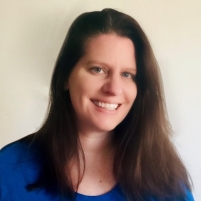 Dr. Casey Holtschneider is an assistant professor of social work at Northeastern Illinois University and has spent the last 20 years working with young people experiencing homelessness. Dr. Holtschneider completed her PhD at the University of Illinois at Chicago where her dissertation research investigated the long-term impact of housing and support services for youth in situations of homelessness in Chicago, IL. Her findings raised critical concerns with regard to: the systemic barriers and further harm youth experience when accessing services; the prioritization and quality of those services; and the continued structural violence that leads to and perpetuates poverty and homelessness for youth. In effort to act on these findings, in 2014 Dr. Holtschneider teamed up with a group of former participants in, and directors of, homeless youth services in Chicago and together they founded the LYTE Collective where Dr. Holtschneider currently serves as executive director. At LYTE, the team is now implementing youth homelessness intervention models that are youth-driven, evidence-guided, and grounded in anti-oppressive practice while they simultaneously work toward necessary structural change. Dr. Casey Holtschneider is an assistant professor of social work at Northeastern Illinois University and has spent the last 20 years working with young people experiencing homelessness. Dr. Holtschneider completed her PhD at the University of Illinois at Chicago where her dissertation research investigated the long-term impact of housing and support services for youth in situations of homelessness in Chicago, IL. Her findings raised critical concerns with regard to: the systemic barriers and further harm youth experience when accessing services; the prioritization and quality of those services; and the continued structural violence that leads to and perpetuates poverty and homelessness for youth. In effort to act on these findings, in 2014 Dr. Holtschneider teamed up with a group of former participants in, and directors of, homeless youth services in Chicago and together they founded the LYTE Collective where Dr. Holtschneider currently serves as executive director. At LYTE, the team is now implementing youth homelessness intervention models that are youth-driven, evidence-guided, and grounded in anti-oppressive practice while they simultaneously work toward necessary structural change. |
|
| |
| |
|
| A Behavior Analytic Perspective on Social Welfare Policy |
| Thursday, October 8, 2020 |
| 8:30 AM–9:30 AM EDT |
| Online |
| Domain: Systems |
| Chair: Mark A. Mattaini (Jane Addams College of Social Work-University of Illinois at Chicago) |
| CE Instructor: Mark A. Mattaini, Ph.D. |
| Presenting Author: BRUCE THYER (Florida State University) |
| Abstract: This presentation provides a review of the application of elementary principles of operant behavior (both contingency-shaped and rule-governed behavior), toward the conceptualization, design, and evaluation of social welfare policy. All social policy is intended to influence human behavior, and it does this most often through the contrived manipulation of contingencies of punishment and, sometimes, reinforcement. Policies that use contingency management are provided to support this thesis, examples illustrating the use of positive reinforcement, negative reinforcement, positive punishment, negative punishment, shaping, and extinction. A form of within subject research designs known as time series studies are ideally suited to evaluate the outcomes of social welfare policies. Too often social welfare policies are devised on the basis of common sense, and lack a strong empirical background of successful experimental pilot testing under real life conditions. Thus, it is common for such policies to be ineffective, or to produce short or long term results that are harmful. Behavior analysts can contribute to the improvement of local communities and our larger society by contributing their expertise in altering human behavior via the design of new welfare policies, the modification of existing programs, and the critical analysis of ineffective ones. |
| Instruction Level: Intermediate |
| Learning Objectives: At the conclusion of the presentation, participants will be able to: (1) describe the fundamental contingencies underlying the mechanisms of action of selected social welfare policies; (2) predict, using behavioral principles, the long-term future success or failure of a contemporary proposed (not yet adopted) national social welfare policy; (3) identify, using behavioral principles, why a previously implemented national or state social welfare policy failed to produce the intended effects. |
| |
| BRUCE THYER (Florida State University) |
 Bruce Thyer, Ph.D. is a Distinguished Research Professor with the College of Social Work at Florida State University. A BCBA-D, he is also a Licensed Clinical Social Worker in Florida and Georgia. He has devoted much of his career to promoting the adoption of behavior analysis within the field of social work. He has been a reviewer for the Journal of Applied Behavior Analysis and a former Associate Editor with that journal. He has published widely in the ABA literature and also in the fields of social work, psychology and psychiatry. |
|
| |
| |
|
| Poverty and Welfare Policy Symposium |
| Thursday, October 8, 2020 |
| 9:30 AM–10:30 AM EDT |
| Online |
| Domain: Systems |
| Chair: Mark A. Mattaini (Jane Addams College of Social Work-University of Illinois at Chicago) |
| CE Instructor: Mark A. Mattaini, Ph.D. |
| Abstract: This symposium will examine the issue of global poverty and analyze policies aimed to reduce poverty from a behavioral perspective. Presenters will offer a conceptual framework for chronic poverty and considerations in collecting and interpreting data related to public policy issues including child welfare practice. Potential actions and technological advancements will be discussed for providing adequate social services and breaking the cycle of chronic poverty to achieve a better world. |
| Instruction Level: Intermediate |
| Learning Objectives: At the conclusion of the presentation, participants will be able to: (1) describe chronic poverty from a behavioral perspective; (2) discuss possible government interventions to incentivize the poor to change their decision making; (3) identify the conditions in which “deep learning” procedures may be employed in the analysis of behavioral data; (4) recognize the types of data that are inappropriate for analysis by way of conventional statistical procedures; (5) discuss how socioeconomic determinants serve as antecedents to large-scale societal problems, including violence; (6) identify examples of the application of behavioral approaches to address social problems that are influenced by poverty, through cross-sector collaboration |
| |
Following the Data: Behavior Analysis in the Age of Artificial Intelligence |
| CHRIS NINNESS (Behavioral Software Systems) |
| Abstract: Behavior analysts have long recognized the benefits of closely following their data; however, the data we are following may be changing faster than the tools we employ to analyze it. Recently, a variety of parametric and non-parametric statistical techniques have become popular alternatives to our foundational tactics in scientific research--even when the data at hand defies the underlying critical statistical assumptions. This problem even saturates behavior analytic investigations that focus on the evaluation of complex data related to public policy issues in areas such as poverty, geriatrics, and child welfare practice. Indeed, it is not uncommon to find statistical artifacts and anomalies tainting articles within many of our most prestigious journals within the disciplines of social services, criminal justice, and urban development. To further complicate this issue, many of our current technological advances are generating nonlinear, non-independent, and non-normal outcomes. In the face of this research enigma, there exists a much more powerful and precise set of classification and prediction platforms for researchers in the behavioral sciences. Unlike conventional statistical strategies, these systems do not entail critical assumptions pertaining to linearity, homoscedasticity, statistical independence, or normality. In this paper, we explore the many ways in which several artificial intelligence systems and related neural network models are capable of accurately classifying and predicting outcomes employing data that is inconsistent with the assumptions underlying conventional statistics. We argue that these models have potential application to a broad spectrum of behavior analytic goals. |
 Chris Ninness earned BS and MS degrees in Psychology as well as a Ph.D. in College Teaching in Psychology (with a secondary emphasis in software development) from the University of North Texas. He also earned a Ph.D. in School Psychology from Texas Woman’s University. He became a senior research analyst for the Dallas ISD software development and applied research group and then a supervising school psychologist for the Denton Independent School District. Later, he completed a Post-Doctoral Fellowship at the Kennedy-Krieger Institute and The Johns Hopkins University School of Medicine in Behavioral Pediatrics. Chris went on to become Director and Professor of the School Psychology Doctoral Program at Stephen F. Austin State University. He has served as Associate Editor for the Journal of Applied Behavior Analysis and The Psychological Record, and he is on the board of editors for Behavior and Social Issues. Presently, Chris is developing artificial intelligence and human-computer interaction software at Behavioral Software Systems. Chris Ninness earned BS and MS degrees in Psychology as well as a Ph.D. in College Teaching in Psychology (with a secondary emphasis in software development) from the University of North Texas. He also earned a Ph.D. in School Psychology from Texas Woman’s University. He became a senior research analyst for the Dallas ISD software development and applied research group and then a supervising school psychologist for the Denton Independent School District. Later, he completed a Post-Doctoral Fellowship at the Kennedy-Krieger Institute and The Johns Hopkins University School of Medicine in Behavioral Pediatrics. Chris went on to become Director and Professor of the School Psychology Doctoral Program at Stephen F. Austin State University. He has served as Associate Editor for the Journal of Applied Behavior Analysis and The Psychological Record, and he is on the board of editors for Behavior and Social Issues. Presently, Chris is developing artificial intelligence and human-computer interaction software at Behavioral Software Systems. |
| |
Examining Socioeconomic Determinants as Antecedents to Violence Using a Behavioral Community Approach |
| JOMELLA WATSON-THOMPSON (University of Kansas) |
| Abstract: There is increased attention to addressing problems of significant societal concern, which disproportionately affects marginalized populations and communities. The history and application of behavioral community approaches for addressing problems in communities including poverty and violence is explored. The integration of behavioral community approaches to examine socioeconomic determinants, including poverty, as antecedents to violence is presented. The importance of promoting cross-sector and multidisciplinary collaboration to advance behavioral community approaches within the context of addressing poverty is discussed. The presentation examines strengths, challenges, and opportunities for using a behavioral science approach to examine poverty as a socioeconomic determinant of health and well-being. |
 Dr. Jomella Watson-Thompson is an Associate Professor in the Department of Applied Behavioral Science, and the Director of the Center for Service Learning at the University of Kansas. She is also an Associate Director with the Center for Community Health and Development. She attained a Ph.D. in Behavioral Psychology and a Masters of Urban Planning from the University of Kansas. She applies behavioral science methods and interventions to improve how communities address issues related to community health and development. Her research has focused on behavioral-community approaches to neighborhood development, substance abuse prevention, and youth and community violence prevention. Dr. Thompson supports community-engaged scholarship using participatory approaches to address social determinants or factors that may contribute to disparities, particularly for marginalized groups and communities. She has researched the effects of community-based processes and behavioral-community interventions to promote mobilization and change in communities. Dr. Thompson has co-authored articles on community capacity-building, youth development, and prevention and received numerous federal, state and local funding awards. She is as an Associate Editor with Behavior and Social Issues. Dr. Thompson has extensive experience providing training, technical support and evaluation for coalitions and community-based initiatives. |
| |
Promoting Intersectoral Action to Address Chronic Poverty and Social Exclusion |
| ROBERTA LEMOS (Virginia Tech Carilion) |
| Abstract: Although the world has made huge efforts to overcome global poverty, 10% of the world's population still lives in extreme poverty without access to the most basic needs such as water, sanitation, health, and education. Some families experience this condition for many years facing a situation that is difficult to emerge from. Previous studies have shown that the constraints of poverty induce a focus on immediate and safe payoffs. This situation becomes a cycle that perpetuates from generation to generation. This presentation will explore ways policy can be designed to incentivize individuals in the lower socioeconomic class to change their decision-making behaviors. Based on a behavioral perspective, we will: 1) present a conceptual framework for chronic poverty, 2) discuss government policies aimed at reducing poverty, and 3) illustrate how intersectoral actions can provide adequate social services to alter the options faced by impoverished families and help address poverty and social exclusion. |
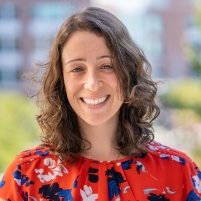 Roberta Freitas Lemos, Ph.D., is a Postdoctoral Associate in the Addiction Recovery Research Center at the Fralin Biomedical Research Institute at Virginia Tech Carilion. In her current position, Dr. Freitas Lemos leads two in-laboratory multi-week experiments examining decision making, behavioral economics, and policy in cigarette smokers and a pilot study focused on understanding motivations for use of diverted buprenorphine. Dr. Freitas Lemos has over 10 years of experience acting on a range of municipal, state, and federal government programs developing opportunities to improve public policy based on behavioral principles. She has personally coordinated the implementation of large-scale social programs directed to vulnerable groups in different municipalities in Brazil. Dr. Freitas Lemos most recent position was as an advisor of the Vice-Minister at the Ministry of Social Development in Brazil (current Ministry of Citizenship). She has also worked as a social policy expert at the Ministry of Human Rights and the Ministry of Health in Brazil. Her interests include Translational Research, Behavioral Science, and Social Protection and Health Policies. Dr. Freitas Lemos has a BA in Psychology from Pontifical Catholic University in Sao Paulo and a BA in Sports Sciences from the University of Sao Paulo. She also completed a study-abroad semester at the University of Porto, Portugal. Dr. Freitas Lemos received a Masters in Experimental Psychology with a focus on Behavior Analysis from Pontifical Catholic University in Sao Paulo. In addition, she took a graduate course in Public Management from Cândido Mendes University. Dr. Freitas Lemos received her PhD in Behavioral Sciences from the University of Brasília. She also visited the Inter-American Development Bank in Washington D.C. for a semester to collaborate with the Social Protection and Division during her Ph.D. studies. Roberta Freitas Lemos, Ph.D., is a Postdoctoral Associate in the Addiction Recovery Research Center at the Fralin Biomedical Research Institute at Virginia Tech Carilion. In her current position, Dr. Freitas Lemos leads two in-laboratory multi-week experiments examining decision making, behavioral economics, and policy in cigarette smokers and a pilot study focused on understanding motivations for use of diverted buprenorphine. Dr. Freitas Lemos has over 10 years of experience acting on a range of municipal, state, and federal government programs developing opportunities to improve public policy based on behavioral principles. She has personally coordinated the implementation of large-scale social programs directed to vulnerable groups in different municipalities in Brazil. Dr. Freitas Lemos most recent position was as an advisor of the Vice-Minister at the Ministry of Social Development in Brazil (current Ministry of Citizenship). She has also worked as a social policy expert at the Ministry of Human Rights and the Ministry of Health in Brazil. Her interests include Translational Research, Behavioral Science, and Social Protection and Health Policies. Dr. Freitas Lemos has a BA in Psychology from Pontifical Catholic University in Sao Paulo and a BA in Sports Sciences from the University of Sao Paulo. She also completed a study-abroad semester at the University of Porto, Portugal. Dr. Freitas Lemos received a Masters in Experimental Psychology with a focus on Behavior Analysis from Pontifical Catholic University in Sao Paulo. In addition, she took a graduate course in Public Management from Cândido Mendes University. Dr. Freitas Lemos received her PhD in Behavioral Sciences from the University of Brasília. She also visited the Inter-American Development Bank in Washington D.C. for a semester to collaborate with the Social Protection and Division during her Ph.D. studies. |
|
| |
| |
|
| Applied Behavior Analysis at the Margins: Opportunities for Public Health Expansion in Marginalized and Underserved Communities |
| Thursday, October 8, 2020 |
| 11:00 AM–12:00 PM EDT |
| Online |
| Domain: Systems |
| Chair: Mark A. Mattaini (Jane Addams College of Social Work-University of Illinois at Chicago) |
| CE Instructor: Mark A. Mattaini, Ph.D. |
| Presenting Author: KASTON ANDERSON-CARPENTER (Michigan State University) |
| Abstract: Much of the applied behavior analytic literature centers on changing individual behavior in a controlled environment, yet behavior analysis research and practice has critical applications in community and population-level behavior. Its application to the field of public health, for instance, provides scientists with a technology for functional contextual analyses of behaviors related to health conditions such as HIV acquisition and substance use disorder. This talk focuses on how applied behavior analysis can further expand to address critical public health issues within marginalized and underserved communities. Special attention will be given to cultural considerations in developing, implementing, and evaluating behavior-analytic interventions in these populations. |
| Instruction Level: Intermediate |
| Learning Objectives: At the conclusion of the presentation, participants will be able to: (1) describe appropriate differential reinforcement procedures for behavior change in immigrant and refugee populations; (2) identify extensions of behavioral cusps in behavior change related to HIV and substance use; (3) describe setting events and motivating operations that influence public health behaviors in lesbian, gay, bisexual, transgender, and queer populations. |
| |
| KASTON ANDERSON-CARPENTER (Michigan State University) |
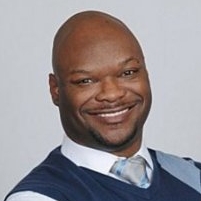 Dr. Kaston D. Anderson-Carpenter is an Assistant Professor of Psychology at Michigan State University. He also holds appointments as Core Faculty in the MSU Consortium for Multicultural Psychology Research and Affiliate Faculty in the MSU Institute for Public Policy and Social Research. He earned his Ph.D. in Behavioral Psychology from The University of Kansas and a Master of Public Health degree with honors from The University of Kansas School of Medicine. He also earned a Master of Arts degree in Experimental Psychology and Applied Behavior Analysis from McNeese State University. Additionally, is a Board Certified Behavior Analyst-Doctoral (BCBA-D) and Licensed Behavior Analyst in the state of Michigan.
Dr. Anderson-Carpenter’s research focuses on substance use and determinants of health in underserved and marginalized communities. Since 2010, Dr. Anderson-Carpenter has worked with local community organizations, state coalitions, and policy makers to address socially important issues affecting marginalized and underserved populations. He has worked in many areas, including substance use and HIV/STI prevention, LGBTQ+ health, and Arab American health. Dr. Anderson-Carpenter’s work has been published in a number of journals and is the 2015 recipient of the G. Alan Marlatt Award for distinguished Scientific Early Career Contributions by the Society of Addiction Psychology. |
|
| |
| |
|
| Critical Conceptual Issues on Culturo-Behavior Science |
| Thursday, October 8, 2020 |
| 1:00 PM–2:00 PM EDT |
| Online |
| Domain: Conceptual |
| Chair: Mark A. Mattaini (Jane Addams College of Social Work-University of Illinois at Chicago) |
| CE Instructor: Mark A. Mattaini, Ph.D. |
| Abstract: This symposium will summarize critical conceptual issues in the emerging study of culturo-behavior science. In addressing the most challenging social and cultural issues facing our world today, there is a need to discuss the underlying conceptual foundations. Presenters will provide a better understanding and a behavior-analytic framework for addressing critical conceptual issues in culturo-behavior science. |
| Instruction Level: Intermediate |
| Learning Objectives: At the conclusion of the presentation, participants will be able to: (1) define the metacontingencies that may govern organizational (or cultural) practices; (2) analyze said metacontingencies using a framework that extends the ABC analysis commonly used to analyze operant contingencies that are governing individual behavior; (3) compare and contrast classifications in the natural and social sciences; (4) discuss using the classifications of culturo-behavior science as a step in the direction of unifying social sciences; (5) list and describe variables that affect the complexity of conditional relations that regulate behavioral interactions in a societal level; (6) predict outcomes (either desired ones of possible difficulties to be faced) of the evolving complexity of conditional relations; (7) Effectively design and assess behavioral interventions aimed at a populational scale. |
| |
Classification and Culturo-Behavioral Science |
| SIGRID GLENN (University of North Texas) |
| Abstract: Classification is at the heart of all science and the power of highly generalized classification systems is evident in physics, chemistry and biology. Classification in the social sciences depends on the specific phenomena being studied. Each discipline has its own classification based on the specific phenomena of interest: Bands and tribes; cities and states; governments and corporations; families, gangs, and schools, and so on. All of these classes are defined in terms of the relations among the behavior of people. This commonality suggests that a unifying system of classification, that could apply to all of those phenomena, might be possible. Perhaps the nascent classifications of culturo-behavior science are a step in that direction. |
 Sigrid Glenn is Regents Professor Emeritus at the University of North Texas. She was the founding chair of UNT’s Department of Behavior Analysis and the founder and former director of UNT’s Behavior Analysis Online program. Her published research includes work in conceptual, experimental and applied areas; current interests are primarily conceptual and philosophical. Her work is currently focused on culturo-behavioral science, a specialty area in behavior analysis whose origins include her work. Dr. Glenn is past president of ABAI and a founding fellow of the Association. She was the 2015 recipient of the Award for Distinguished Service to Behavior Analysis. Other awards include TxABA Award for Career Contributions to Behavior Analysis in Texas; CalABA’s Award for Outstanding Contributions to Behavior Analysis; the Michael Hemingway Award for Advancement of Behavior Analysis; the Cambridge Center for Behavioral Studies Ellen P. Reese Award in Recognition for Significant Contributions to Communication of Behavioral Concepts; and--most important to her--the ABAI 2008 Student Committee Award for Outstanding Mentorship of students. |
| |
Moving Culturo-Behavioral Analysis From Conceptual to Practical: Developing Culturo-Behavioral Tools of the Trade |
| JONATHAN KRISPIN (Valdosta State University) |
| Abstract: Culturo-behavioral science is a rapidly developing field within behavior analysis. A number of indicators point to this fact. For example, Mattaini (2006) questioned whether or not cultural analysis would ever become a science, focusing particularly on the concept of the metacontingency (Glenn 1988: 1991), which had been proposed as an emergent level of selection. Thirteen years later, ABAI is publishing a book on culturo-behavioral analysis and is hosting a conference dedicated exclusively to culturo-behavioral considerations. While progress has been made, there remains much work to be done. One of Mattaini’s (2006) biggest criticisms of the metacontingency stemmed from the fact that, at that time, almost no research had been done that focused on metacontingencies. Since that time, there has been a significant increase in the amount of published research articles focusing on metacontingencies (see Zilio, 2019), but there is still a question as to the efficacy of the metacontingency, at least as a process of cultural selection (Couto & Sandaker, 2016, Krispin 2016, Zilio, 2019). Additionally, application of these ideas has remained limited, however (see Zilio, 2019) and remains a daunting challenge (see Mattaini, in press). One area that has lagged behind the conceptual development in culture-behavioral analyses is the development of standardized tools for analyzing and understanding the selective dynamics that are at work in a given situation. In an effort to begin to address this short-coming, a new framework and corresponding tool for analyzing interactions between individual contingencies, metacontingencies, and the selection contingencies that stem from the selection of an Aggregate Product by a Selecting Environment/Receiving System. This framework begins to extend the ABC analysis that is commonly used in applied behavior analysis to include aspects of rule-governed behavior (pliance rules versus tracking rules, pliance consequences versus tracking consequences), as well as compare the types of systems-dynamics feedback (positive feedback loops versus negative feedback loops) that stem from metacontingencies that compete for organizational resources. This framework and tool will be illustrated using organizational contingencies typical of a behavioral systems approach, with some attention given to its potential application in wider culturo-behavioral settings. |
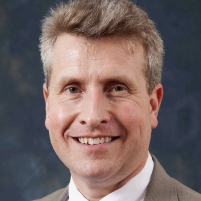 Jonathan Krispin is Associate Professor of Management at the Langdale College of Business at Valdosta State University; he returned to academics in January 2013, after a 17-year career in the private sector. His research interests are primarily in the areas of organizational culture, business process improvement, organizational change, and leadership development. Since returning to academics, Jonathan has focused his writing and research efforts on joining concepts from behavior analysis with concepts from systems analysis, particularly from theory related to self-organizing systems. This has led to several publications in Behavior and Social Issues and Perspectives on Behavior Science. He has presented at numerous conferences including the numerous ABAI Annual Conventions, the ABAI International Conferences in Paris and Stockholm, and as an invited speaker at the 12th Annual European Conference on Behavior-Based Safety and Performance Management hosted by AARBA (the Italian Chapter of ABAI) in Como, Italy in 2018. He has also been a guest lecturer at Oslo Metropolitan University in 2018 and 2019. |
| |
Role of Verbal Behavior and Artifacts in Cultural Change |
| RAMONA HOUMANFAR (University of Nevada, Reno) |
| Abstract: This presentation will provide an overview of the elaborated account of metacontingency with the primary focus on ways this perspective offers points of entry to alter contextual factors influencing cultural practices. The concepts of metacontingency and macro contingency are emphasized as foundational concepts in the behavior scientific analysis of the interaction between organizational practices producing products and behaviors of their consumers. Moreover, the role of cultural milieu as a mediating factor in this interaction will be highlighted. The discussion of cultural phenomena also acknowledges the behaviors of verbally sophisticated consumers interacting with the many aggregate products of cultural entities as well as the verbal contexts within which members of organized groups operate. The presentation will also highlight the recent experimental and conceptual analyses associated with the role of context in the selection of cooperation and resilience. |
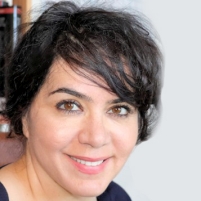 Dr. Ramona A. Houmanfar is Professor of Psychology and the Director of the Behavior Analysis Program at the University of Nevada, Reno (UNR). She currently serves as the trustee of the Cambridge Center for Behavioral Studies, Chair of the Organizational Behavior Management Section of Cambridge Center for Behavioral Studies, and editorial board members of the Journal of Organizational Behavior Management, and Behavior & Social Issues. Dr. Houmanfar recently completed her seven-year term as the editor of Journal of Organizational Behavior Management. She has served as the former senior co-chair of the Association for Behavior Analysis International, Director of the Organizational Behavior Management Network and President of the Nevada Association for Behavior Analysis. Dr. Houmanfar has published over seventy peer reviewed articles and chapters, delivered more than 100 presentations at regional, national, and international conferences in the areas of behavioral systems analysis, cultural behavior analysis, leadership in organizations, rule governance, communication networks, instructional design, and bilingual repertoire analysis and learning. Her expertise in behavioral systems analysis and cultural behavior analysis have also guided her research associated with implicit bias, cooperation, situational awareness, decision making, and value based governance. Dr. Houmanfar has published three co-edited books titled “Organizational Change” (Context Press), "Understanding Complexity in Organizations", and “Leadership & Cultural Change (Taylor & Francis Group). |
| |
Of Broken Windows and Beggars: Control Agencies, Complexity and Large-Scale Changes in Cultural Practices |
| FELIPE LEITE (Imagine Tecnologia Comportamental), João Todorov (Universidade de Brasilia) |
| Abstract: The set of conditional relationships (contingencies and metacontingencies) that regulate behavioral interactions in a society characterizes its culture. These conditional relationships may encompass society as a whole or parts of society, with evolving complexity. The increasing complexity of sets of conditional relationships can be mapped by identifying and describing changes in the external environment of a specific cultural system that affects demands upon it, population size, function specialization of its members, hierarchical layers, conflicts between contingencies that affect different individuals and groups, and disparity of consequences for the individual and for the group. Following the increasing specialization of individual behavioral repertoire, specialized societal behavioral interactions can emerge. One such are control agencies, which regulate sets of conditional relationships and are specialized by type of interaction or various other performance criteria. Although experimental studies of large-scale changes in cultural practices are all but impossible, natural experiments and quasi-experimentation available methods to observe the effects of independent variables as theoretically predicted. The present paper analyzes a few cases of large-scale changes in cultural practices at a societal level, mainly involving public policies, in an attempt to identify behavioral and cultural processes that occurred and associating these with elements of cultural complexity which they affected or that were manipulated. |
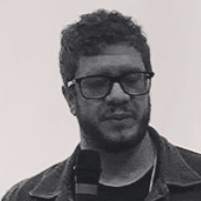 Dr. Felipe Lustosa Leite is a researcher in Behavior Analysis and entrepreneur in Fortaleza, Ceará, Brazil. He earned his doctoral and master’s degree in Behavior Theory and Research from the Federal University of Pará, doing mainly experimental work in the field of behavioral analysis of culture. During his graduate education he helped in setting up a laboratory for experimental research in his field and also collaborated with researchers from other Brazilian labs. He earlier graduated in psychology at the University of Fortaleza. He previously worked as an undergraduate level professor at the Federal University of Pará and the University of Fortaleza. Now he is a researcher at Imagine Behavioral Technology and director of Imagine Publications, both of which he is a co-founder and partner. The second, a publishing company specialized in behavior-analytic products, is used as an outlet to disseminate new ideas from Brazilian researchers, publish technical and educational materials and also translations. His current main research project involves evaluating municipal public policies on urban mobility and bicycle use. He also acts as a consultant for writing legislation involving rights for people diagnosed with Autism Spectrum Disorder. He previously served as president of the Brazilian Association of Behavioral Psychology and Medicine (ABPMC, from Portuguese; ABAI Brazilian chapter; 2017-2018) and was honored at the Legislative Assembly of Fortaleza in August 30, 2019 for his services done for the community at the city of Fortaleza and the State of Ceará. Dr. Felipe Lustosa Leite is a researcher in Behavior Analysis and entrepreneur in Fortaleza, Ceará, Brazil. He earned his doctoral and master’s degree in Behavior Theory and Research from the Federal University of Pará, doing mainly experimental work in the field of behavioral analysis of culture. During his graduate education he helped in setting up a laboratory for experimental research in his field and also collaborated with researchers from other Brazilian labs. He earlier graduated in psychology at the University of Fortaleza. He previously worked as an undergraduate level professor at the Federal University of Pará and the University of Fortaleza. Now he is a researcher at Imagine Behavioral Technology and director of Imagine Publications, both of which he is a co-founder and partner. The second, a publishing company specialized in behavior-analytic products, is used as an outlet to disseminate new ideas from Brazilian researchers, publish technical and educational materials and also translations. His current main research project involves evaluating municipal public policies on urban mobility and bicycle use. He also acts as a consultant for writing legislation involving rights for people diagnosed with Autism Spectrum Disorder. He previously served as president of the Brazilian Association of Behavioral Psychology and Medicine (ABPMC, from Portuguese; ABAI Brazilian chapter; 2017-2018) and was honored at the Legislative Assembly of Fortaleza in August 30, 2019 for his services done for the community at the city of Fortaleza and the State of Ceará. |
|
| |
| |
|
| Research and Training on Culturo-Behavior Science |
| Thursday, October 8, 2020 |
| 2:00 PM–3:00 PM EDT |
| Online |
| Domain: Systems |
| Chair: Mark A. Mattaini (Jane Addams College of Social Work-University of Illinois at Chicago) |
| CE Instructor: Mark A. Mattaini, Ph.D. |
| Abstract: Several behavioral programs are advancing the culture of behavioral science. These presenters will offer recent research across universities in the U.S. and Brazil relevant to large scale behavior change and social activism. Topics discussed will focus on how culturo-behavior scientist can use research to inform and impact public policy. |
| Instruction Level: Intermediate |
| Learning Objectives: At the conclusion of the presentation, participants will be able to: (1) identify basic science as an important tool in culturo-behavior science; (2) identify basic knowledge as power in modern world, and scientific literacy as social activism; (3) discuss some aspects of the Brazilian academic environment that selected approaching social issues from a behavior analytic account; (4) discuss strategies to present social issues in Culturo-Behavior Science to students; (5) describe 1-3 ways in which behavior scientists may start to explore CBS as their own interest area; (6) describe 1-3 ways in which behavior scientists may be able to cultivate and develop students’ interests in CBS. |
| |
Teaching Students Cross-Sectoral and Multidisciplinary Approaches to Societal Challenges |
| INGUNN SANDAKER (Oslo Metropolitan University) |
| Abstract: Universities should highlight the consequences of antagonistic approaches to societal challenges. These are often paralleled into ideological frontiers. Even though there are need for highly specialized competencies to solve some of the wicked problems society encounter, the ability to exploit and explore complementary solutions increases as complexity grows. On all levels, from agent interaction to policy makers, the multidisciplinary behavioral insight offers tools that more effectively and more efficiently meet intended goals and address the real needs of citizens and end-users. Government interventions are often based on deductive approach, assuming human behavior to be profoundly rational and implementing reforms at full scale. By using the growing body of behavioral insights, one might debias this process by moving away from sometimes unrealistic assumptions of rationality to discover the actual behavior of individuals through problem identification, behavior analysis, experimentation and trialing that tests multiple policy responses at a smaller scale to determine the best course of action in a cost-effective manner. This will enable our students to not only addressing societal challenges, but also ability to contributing to the solutions. |
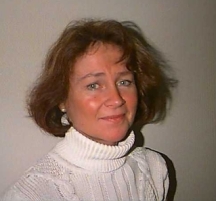 Dr. Ingunn Sandaker is a professor and program director of the Master and Research Program Learning in Complex Systems at Oslo and Akershus University College. She also initiated the development of the first Ph.D. program in behavior analysis in Norway. She has been the program director since it was established in 2010. She received her Ph.D. in 1997 at the University of Oslo with a grant from the Foundation for Research in Business and Society at the Norwegian School of Economics and Business Administration. Her thesis was a study on the systemic approach to major changes in two large companies; one pharmaceutical company and one gas and petroleum company. During preparations for the Olympic games in Sydney, Australia, and Nagano, Japan, she was head of evaluation of a program aiming at extending female participation in management and coaching and assisting the Norwegian Olympic Committee’s preparations for the games. For a number of years, Dr. Sandaker worked as an adviser on management training and performance in STATOIL and Phillips Petroleum Co. in Norway. She also was project manager for Railo International who in cooperation with the Norwegian School of Economics and Business Administration ran a project preparing the electricity supply system in Norway for marked deregulations. Serving as a consultant on top level management programs in Norwegian energy companies, her interest has been focused on performance management within a systems framework. Trying to combine the approaches from micro-level behavior analysis with the perspective of learning in complex systems, and cultural phenomena, she is interested in integrating complementary scientific positions with the behavior analytic conceptual framework. Dr. Ingunn Sandaker is a professor and program director of the Master and Research Program Learning in Complex Systems at Oslo and Akershus University College. She also initiated the development of the first Ph.D. program in behavior analysis in Norway. She has been the program director since it was established in 2010. She received her Ph.D. in 1997 at the University of Oslo with a grant from the Foundation for Research in Business and Society at the Norwegian School of Economics and Business Administration. Her thesis was a study on the systemic approach to major changes in two large companies; one pharmaceutical company and one gas and petroleum company. During preparations for the Olympic games in Sydney, Australia, and Nagano, Japan, she was head of evaluation of a program aiming at extending female participation in management and coaching and assisting the Norwegian Olympic Committee’s preparations for the games. For a number of years, Dr. Sandaker worked as an adviser on management training and performance in STATOIL and Phillips Petroleum Co. in Norway. She also was project manager for Railo International who in cooperation with the Norwegian School of Economics and Business Administration ran a project preparing the electricity supply system in Norway for marked deregulations. Serving as a consultant on top level management programs in Norwegian energy companies, her interest has been focused on performance management within a systems framework. Trying to combine the approaches from micro-level behavior analysis with the perspective of learning in complex systems, and cultural phenomena, she is interested in integrating complementary scientific positions with the behavior analytic conceptual framework. |
| |
Do Behavior Analysts Really Study That? Bringing Social Issues to the Discussion of Behavior Analysis in Brazil |
| AECIO BORBA VASCONCELOS NETO (Universidade Federal do Para) |
| Abstract: Behavior analysis is well known in Brazil as one of the main approaches to experimental psychology, and a clinical practice to intervene with neurotypical or delayed developmental audiences. Less known in the country is how behavior analysis may approach social issues and systemic interventions. Although this has been an area of intense growth in Brazil in the last two decades, most of the students in psychology don't know that behavior analysis deals with such topics. This presentation discusses some of the contingencies and metacontingencies that selected approaching social issues in Brazil, especially how Psychology Faculties and students over the years in general (Behavior Analysis in it) have been part of social movements and directly related to social sciences since the 1970s. The presentation finish with some of the strategies used to propagate this area among students in Brazil. |
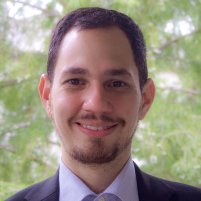 Psychologist Aécio Borba graduated from Universidade Federal do Ceará (2004), and received his master’s (2007) and Ph.D. (2013) in Behavior Theory and Research from Universidade Federal do Pará, where he is an Adjunct Professor. Dr. Borba works in behavior analysis, with research interests including cultural selection and subjectivity; and work and organizational psychology, with an emphasis in Organizational Culture. He is a visiting research scholar (2018-2020) at the University of North Texas, Denton (USA). Psychologist Aécio Borba graduated from Universidade Federal do Ceará (2004), and received his master’s (2007) and Ph.D. (2013) in Behavior Theory and Research from Universidade Federal do Pará, where he is an Adjunct Professor. Dr. Borba works in behavior analysis, with research interests including cultural selection and subjectivity; and work and organizational psychology, with an emphasis in Organizational Culture. He is a visiting research scholar (2018-2020) at the University of North Texas, Denton (USA). |
| |
Getting Started in Culturo-Behavior Science |
| TRACI CIHON (University of North Texas) |
| Abstract: As a recently formalized specialization, Culturo-Behavior Science (CBS) explores how to take behavior science to scale; how to better understand the influences of social, institutional, and cultural variables on cooperative and competitive behavior; and how behavior science can contribute to solving some of the world’s most pressing problems. However, determining where to start and what strategies to use to develop expertise in an emerging specialization may prove challenging. Opportunities to be mentored, join labs, take formal courses, and conduct research in CBS are not yet widely available. Nonetheless, the Department of Behavior Analysis at the University of North Texas has been instrumental in providing such opportunities for students, faculty, and scholars (i.e., the Behavior and Culture Lab coordinated by Glenn from 2006-2012). Recently, we have rekindled such efforts with the creation of the Cultural Design and Systems Lab (Cihon, Becker, & Ortu 2018 to present) and the provision of graduate-level coursework in CBS. The goal of this presentation is to describe our recent efforts to provide opportunities for students, faculty, and scholars to pursue their interests in CBS and to make tangible suggestions for students, faculty, and scholars interested in getting started in CBS. |
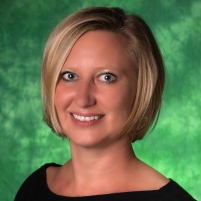 Dr. Traci Cihon received her master’s degree from the University of Nevada-Reno and her PhD from The Ohio State University. Currently, she is an Associate Professor in the Department of Behavior Analysis at The University of North Texas where she teaches graduate level courses in ethics and behavioral systems analysis and the undergraduate Organizational Behavior Management courses. Dr. Cihon has developed behavioral interventions for individuals with and without disabilities in home and school settings both domestically and internationally. Her scholarship focuses cultural and-behavioral systems science, verbal behavior, international and interdisciplinary work, and behavioral education. At UNT, Dr. Cihon co-leads the Cultural Design & Systems Lab, conducting research that contributes to our understanding of how cultural phenomena develop from a systems and selectionist perspective. In addition, she serves on editorial boards for several peer-reviewed journals including The Analysis of Verbal Behavior, Behavior and Social Issues, Perspectives on Behavior Science, and the American Annals of the Deaf. Her most recent projects include co-editing a special section of Perspectives on Behavior Science focused on cultural and behavioral systems science and co-editing Behavior Science Perspectives on Culture and Community, part of a new ABAI book series - both with Dr. Mark Mattaini, and serving as the editor for a special section in Behavior and Social Issues on papers developed from the 5th Think Tank on Cultural Analysis. |
| |
Basic Science is Also a “Real-World Problem”: Knowledge as Power and Scientific Literacy as Social Activism |
| MARCELO BENVENUTI (Universidade de São Paulo) |
| Abstract: For many social activists and applied researchers, once a technology that can solve a social problem is found, basic science loses its importance. For them, dealing with “big issues” is more important than investing in abstract understanding or predicting natural phenomena. In fact, ideas such as social justice, human rights, and environmental changes require urgent solutions. For this reason, knowledge directly related to behavior changes on a large scale is usually viewed as more important for social change than the ones made by basic science. The first is assumed to deal with “real-world problems” while the second is viewed as something abstract and distant from social demands in a world that claims for social change. However, the knowledge that comes from basic science is probably the most fundamental source of power in modern societies and more than an initial step to technology and innovation. Technology and innovation is only one aspect of scientific development. This presentation stands that basic science in culturo-behavior science is also a “real-world problem” in the sense that it explores fundamental questions of human existence, constantly reviews our comprehensions on our basic phenomena, provides a deep understanding of why certain practices works or not and connects us with other sciences. This is what makes scientific literacy a key component for social activism: we cannot only be efficient to promote behavior and social change in large scale, we must also inform people about what behavior means, what is cultural practices, so people can independently make better decisions in their daily lives. I will try to highlight the need for a mutual relationship among basic science, applied science, programs for behavior change in large scale, and scientific literation as a mission for culture-behavior science. |
 Marcelo Benvenuti is Assistant Professor of Psychology at University of São Paulo (USP), where he coordinates the Social Behavior Lab. He received his BA from Pontifícia Universidade de São Paulo (PUC-SP) and his PhD from USP. He served as Assistant Professor of Behavior Analysis at PUC-SP from 2000 to 2007. He also served as Invited Professor at Universidade de Brasília (UnB) from 2007 to 2011. He is also part of the research tem from the National Institute About Behavior, Cognition and Teaching (INCT-ECCE). Benvenuti's research aims to investigate social behavior and cultural practices His laboratory investigates issues related to metacontingencies, inequity aversion, morality, social aspects of superstitious behavior and illusion of control using mainly laboratory behavioral studies, but also surveys and economic games. The ultimate goal is to discuss units of analysis that define social behavior and social interactions in cultural practices. Marcelo Benvenuti is Assistant Professor of Psychology at University of São Paulo (USP), where he coordinates the Social Behavior Lab. He received his BA from Pontifícia Universidade de São Paulo (PUC-SP) and his PhD from USP. He served as Assistant Professor of Behavior Analysis at PUC-SP from 2000 to 2007. He also served as Invited Professor at Universidade de Brasília (UnB) from 2007 to 2011. He is also part of the research tem from the National Institute About Behavior, Cognition and Teaching (INCT-ECCE). Benvenuti's research aims to investigate social behavior and cultural practices His laboratory investigates issues related to metacontingencies, inequity aversion, morality, social aspects of superstitious behavior and illusion of control using mainly laboratory behavioral studies, but also surveys and economic games. The ultimate goal is to discuss units of analysis that define social behavior and social interactions in cultural practices. |
|
| |
| |
|
| Science Policy: Understanding and Informing the Decision-Making Process |
| Thursday, October 8, 2020 |
| 3:30 PM–4:30 PM EDT |
| Online |
| Domain: Systems |
| Chair: Mark A. Mattaini (Jane Addams College of Social Work-University of Illinois at Chicago) |
| CE Instructor: Mark A. Mattaini, Ph.D. |
| Presenting Authors: JULIANE BARON (Federation of Associations in Behavioral & Brain Sciences (FABBS)), SHARON COURTNEY (Tulane University) |
| Abstract: To many scientists, the policy making process in Washington, DC is a black box. In this session, attendees will have the opportunity to learn about the federal decision-making process, beyond the “Schoolhouse Rock” version, from a long-time science advocate. Budget and policy decisions affect funding for science and in the past, behavioral sciences have been negatively impacted by a lack of understanding of and appreciation for the field. The Federation of Associations in Behavioral & Brain Sciences represents ABAI in Washington, DC. This session is an opportunity to learn more about the work of FABBS and strategies for communicating with decision makers. Scientists interested in connecting their research to policy decisions and legislation should not miss this session. |
| Instruction Level: Intermediate |
| Learning Objectives: At the conclusion of the presentation, participants will be able to: (1) describe the federal budget process and identify points when critical for behavioral work to be considered; (2) identify advocacy resources to better interface with policymakers; (3) identify opportunities to better contribute science that informs public policy efforts. |
| |
| JULIANE BARON (Federation of Associations in Behavioral & Brain Sciences (FABBS)) |
 Juliane Baron is the Executive Director of the Federation of Associations in Behavioral and Brain Sciences. In this role she supports the FABBS mission to promote human potential and well-being. FABBS furthers this goal by advancing the sciences of mind, brain, and behavior; promoting scientific research and training in these fields; educating the public about the contributions of research to the health and well-being of individuals and society; fostering communication among scientists; and recognizing scientists who have made significant contributions to building knowledge.
Previously Baron served as the Director of Government Relations at the American Educational Research Association. She leads AERA’s education and advocacy efforts on Capitol Hill and with federal agencies, and plays a strategic role with committees and coalitions that deal with research funding, research policy, and education. From 2006 to 2014, Baron served as deputy director of government and public affairs for the Population Association of America and the Association of Population Centers. Prior to that, she was deputy director of the Social Policy Action Network from 2001 to 2004 and director of the Population Resource Center from 2005 to 2007. For three years, Baron worked as a legislative staffer in the Texas House of Representatives, followed by a two-year stint as associate research scientist and project manager of Welfare, Children, & Families: A Three City Study, a multi-investigator study housed at Johns Hopkins University. Baron received her BA from the University of Wisconsin–Madison and her MPA from the Lyndon B. Johnson School of Public Affairs at the University of Texas. |
| SHARON COURTNEY (Tulane University) |
 Sharon Courtney is Tulane's liaison with Louisiana's Congressional Delegation and their staffs. She monitors legislative issues of importance to Tulane and seeks funding for university projects through legislative means by working with Tulane's consultants in Washington, D.C. She also serves as a link between the university and various national higher education organizations such as the National Association of Independent Colleges and Universities (NAICU), the Association of American Universities (AAU), and the Association of American Medical Colleges (AAMC). Sharon Courtney is Tulane's liaison with Louisiana's Congressional Delegation and their staffs. She monitors legislative issues of importance to Tulane and seeks funding for university projects through legislative means by working with Tulane's consultants in Washington, D.C. She also serves as a link between the university and various national higher education organizations such as the National Association of Independent Colleges and Universities (NAICU), the Association of American Universities (AAU), and the Association of American Medical Colleges (AAMC). |
|
| |
| |
|
| A Generation At Risk: Family Separation Policies Across the Country and Its Impact on American Children |
| Friday, October 9, 2020 |
| 8:30 AM–9:30 AM EDT |
| Online |
| Domain: Systems |
| Chair: Mark A. Mattaini (Jane Addams College of Social Work-University of Illinois at Chicago) |
| CE Instructor: Mark A. Mattaini, Ph.D. |
| Presenting Author: CARLOS GUEVARA (UnidosUS) |
| Abstract: In the spring of 2018, America watched in horror as nearly 3,000 children were separated from their parents on the southern border. Civil society groups have righteously and steadfastly responded to these harmful policies. What is often lost in the national conversation today is a deeper recognition that what has transpired at the border is just the tip of a very large iceberg. There are nearly 6 million American children in the country living with an undocumented parent. These families could be separated by deportation at any time. In 2019, UnidosUS published a report entitled, “Beyond the Border: Family Separation in the Trump Era.” It considers the consequences of a continued immigration policy status quo on these American children by looking at the intersection of immigration policy and health, education, and economic outcomes. The UnidosUS team has delved deeper into these issues including by examining the impact of the current immigration environment on K-12 student. We have also elevated these intersection in the press, including, in the context of a proposed housing policy change, in a New York Times Op-Ed by UnidosUS President and CEO, Janet Murguia. In short, UnidosUS believes that state-funded cruelty against immigrant communities imposes perhaps some of the steepest harms on American children, and that the nation is at a critical moment for action. |
| Instruction Level: Intermediate |
| |
| CARLOS GUEVARA (UnidosUS) |
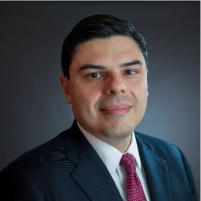 Carlos Guevara is the Associate Director for the UnidosUS Immigration Policy Project. Carlos leads UnidosUS’s immigration policy work, which focuses on advancing effective and humane federal immigration policies that promote and uphold family unity, protect workers’ rights, build on immigrant integration efforts, and improve the current immigration system. Headquartered in Washington, DC, UnidosUS is the largest national Hispanic civil rights and advocacy organization in the United States. Through its network of nearly 300 affiliated community-based organizations, UnidosUS reaches millions of Hispanics each year in 41 states, Puerto Rico, and the District of Columbia.
Prior to joining UnidosUS, Carlos was a Counselor in the Office of the Secretary at the U.S. Department of Homeland Security from 2014-2017. There, he worked on immigration policy issues under the Obama Administration. Before that, he served as a Staff Attorney at the Diocese of Grand Rapids, MI then Catholic Charities of Baltimore where he provided a wide range of Immigration Legal Services to low income immigrants.
Mr. Guevara earned his Juris Doctor from the University of Maryland Francis King Carey School of Law, and his bachelor’s degree from University of Virginia. He is a licensed attorney in Maryland. Carlos was born in Hermosillo, Mexico and grew up in San Antonio, Texas. |
|
| |
| |
|
| Immigration and Human Rights Symposium |
| Friday, October 9, 2020 |
| 9:30 AM–10:30 AM EDT |
| Online |
| Domain: Systems |
| Chair: Mark A. Mattaini (Jane Addams College of Social Work-University of Illinois at Chicago) |
| CE Instructor: Mark A. Mattaini, Ph.D. |
| Abstract: In response to Guevara’s examination of current immigration policies and their repercussions, the panelists will present behavior analytic interpretations of this issue and offer strategies for behavior scientists to engage in activism and human rights advocacy efforts. Beginning with a better understanding of the history of behaviorism in supporting humane immigration policies, the panelists will offer a call to action for culturo-behavior scientists to extend this analysis in light of existing conditions. Ongoing research designed to change verbal behavior and promote social activism using stimulus control procedures and shaping will be discussed as well as the critical role of graduate students and future behavior analysts in addressing global humanitarian crises. |
| Instruction Level: Intermediate |
| Learning Objectives: At the conclusion of the presentation, participants will be able to: (1) understand behaviorism’s legacy of advocacy for progressive social change in general and for humane immigration policies in particular; (2) understand how one can utilize behavior analytic and cultural behavior science in the service of personal progressive values; (3) appreciate the skills beyond technical ones that are needed to apply behavioral analyses effectively in the service of social activism; (4) generate ideas for cultural behavior science research, social action, and education/training that promote humane immigration policies; (5) identify one or more existing societal-level problems that influence their professional practice possibly maintained through group contingencies within the behavior analytic community; (6) analyze how differences between one’s own cultural variables and learning history and those of their clients’ or co-workers may “significantly affect” professional work; (7) list resources shared that provide support to behavior analysts seeking to extend the science and practice of behavior analysis to solving local or global humanitarian crises; (8) assess environmental variables and/or behaviors amenable to change that facilitate scaling of behavior analysis to societal-level problems such as immigration, migration, sustainability, climate crisis, income inequality, etc.; (9) identify injustices and dangers experienced by vulnerable populations in borderlands; (10) identify five component skill sets that may lead to more compassionate responses to the suffering of vulnerable populations; (11) describe the process of translating values into actions. |
| |
Cultural Behavior Science and Humane Immigration Policies: Let’s Go Back to the Future! |
| RICHARD RAKOS (Cleveland State University) |
| Abstract: Behaviorism’s history of progressive social-cultural analysis and action started with its founder, John B. Watson. Among the social issues he addressed most stridently was the anti-immigration fervor that swept the United States during and after World War I. This nativism, energized by a surging eugenics movement that included virtually all the leading figures in US psychology, triumphed with the passage of the Johnson-Lodge Immigration Act of 1924 that established discriminatory “national origin quotas.” In this context, I discuss Watson’s famous “give me a dozen healthy infants” challenge, usually dismissed as ridiculous ideological hyperbole, as embedded in his scientific rebuttal to the eugenicists who championed the 1924 act. Unfortunately, though scientifically advocating for humane immigration policies is a legacy of behaviorism, a review of the literature since Watson indicates that immigration rarely has been an interest of cultural behavior science. However, given current anti-immigration policies and the criteria used to accept applicants, it is time for behaviorism to reclaim this legacy. Toward this end, I propose that an immigration policy grounded in a behavior analytic model offers a scientific alternative to current policies that is both humane in its treatment of applicants and beneficial in important ways to US society. I suggest what might comprise such a behaviorally-based immigration policy and conclude by indicating several different ways -- research, social activism, and graduate student education – that cultural behavior science can return to one of its important roots and join other sciences in using its understandings to inform and promote humane immigration policies. |
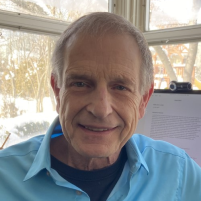 I received my Ph.D. in clinical psychology from Kent State University and now am Emeritus Professor of Psychology at Cleveland State University. I retired in 2016 after 37.5 years at CSU, most recently as associate dean for faculty and program development in the College of Sciences and Health Professions. I have concentrated my publications and presentations in the areas of assertiveness training, self-management, law and psychology, and behavioral-cultural analysis of social, political, and societal issues that relate to improving equity, cooperation, and justice among people. I served as Editor of Behavior and Social Issues (and its predecessor journals Behaviorists for Social Action Journal and Behavior Analysis and Social Action) from 1981-1993 and as associate or consulting editor of BSI from 1993 to the present. I also served on the editorial board of Law and Human Behavior from 2000-2016 and am a Fellow in the American Psychological Association. Since retiring from CSU, I have maintained my behavior analytic scholarly activities while expanding my private clinical practice significantly, focusing on the behavioral out-patient treatment of persons experiencing difficulties with anxiety, stress, depression, self-control, obsessions and compulsions, social/interpersonal relationships, and parenting/child management. I received my Ph.D. in clinical psychology from Kent State University and now am Emeritus Professor of Psychology at Cleveland State University. I retired in 2016 after 37.5 years at CSU, most recently as associate dean for faculty and program development in the College of Sciences and Health Professions. I have concentrated my publications and presentations in the areas of assertiveness training, self-management, law and psychology, and behavioral-cultural analysis of social, political, and societal issues that relate to improving equity, cooperation, and justice among people. I served as Editor of Behavior and Social Issues (and its predecessor journals Behaviorists for Social Action Journal and Behavior Analysis and Social Action) from 1981-1993 and as associate or consulting editor of BSI from 1993 to the present. I also served on the editorial board of Law and Human Behavior from 2000-2016 and am a Fellow in the American Psychological Association. Since retiring from CSU, I have maintained my behavior analytic scholarly activities while expanding my private clinical practice significantly, focusing on the behavioral out-patient treatment of persons experiencing difficulties with anxiety, stress, depression, self-control, obsessions and compulsions, social/interpersonal relationships, and parenting/child management. |
| |
I Am One of Skinner’s Uncommitted |
| MEGAN KIRBY (University of South Florida) |
| Abstract: Although majority of behavior analytic practitioners work in a medical/outpatient model of ABA service delivery, a growing number of behaviorists express a desire to collaborate with other professions and apply the science of behavior to solve global crises. This talk will share one BCBA’s experience pivoting a career as a Director of ABA Services to graduate researcher designing educational interventions for displaced children (i.e., migrants, refugees). The purpose of the presentation is to educate others about what it may entail to be one of Skinner’s “uncommitted” (Skinner, 1987) and hopefully inspire fellow behavior analysts to combat the “inertia of affluence” (Mattaini & Aspholm, 2016) and join the fight to save the world with behavior analysis. |
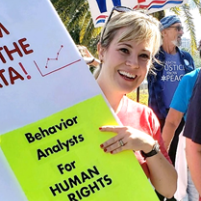 Megan Sullivan Kirby, BCBA (pronouns: she/her/hers) is a doctoral student and graduate research assistant at the University of South Florida (Advisor: Trina Spencer, PhD, BCBA-D). Having co-founded UncomfortableX in 2017, she engages in personal and professional interests linking the application of behavior analysis to social justice, education and human rights. Her primary research interests involve the measurement of narrative language in early childhood and designing storytelling interventions to support educational programming for displaced children in refugee camps around the world. Megan Sullivan Kirby, BCBA (pronouns: she/her/hers) is a doctoral student and graduate research assistant at the University of South Florida (Advisor: Trina Spencer, PhD, BCBA-D). Having co-founded UncomfortableX in 2017, she engages in personal and professional interests linking the application of behavior analysis to social justice, education and human rights. Her primary research interests involve the measurement of narrative language in early childhood and designing storytelling interventions to support educational programming for displaced children in refugee camps around the world. |
| |
| We Are All in This Together: Changing Individual Behavior to Support Humane Policies |
| SHAHLA ALA'I (University of North Texas) |
| Abstract: Global injustices and dangers experienced by vulnerable populations are becoming more and more apparent. Many of these occur in borderlands and involve complex responses to people of different national, racial and ethnic identities. The purpose of this presentation is to share the process and preliminary outcomes of an education project aimed to increase compassionate responses to suffering in vulnerable populations in borderlands. “Nur-e-Esperanza” is a collective learning project grounded in the philosophies of behaviorism, womanism, and the people’s science movement. Our approach involves inductive and participatory practices to increase the expansiveness and depth of social discourse within local communities. Specifically, we are developing and evaluating component training modules for: 1) Noticing and relating to the feelings of others, especially those that are very different than ourselves; 2) Noticing and evaluating the social justice relationships between ourselves, communities and institutions; 3) Noticing dimensions of social privilege, coercion and attraction; 4) Engaging in skilled dialogs between people of diverse lived experiences; and, 5) Engaging in the translation of values into strategic actions and reflections. Our topics center on race, gender, religion and nationality. Our dependent variables are changes in verbal behavior, feelings, and reported activism. The instructional design involves stimulus control procedures (systematic introduction and discrimination of increasingly complex classes of social justice/injustice examples) and collective shaping of noticing and engaging. The project is discussed in relation to the ways that understanding and changing individual behavior may support actions and policies that protect and enhance human life and reduce suffering. |
 Shahla Ala’i received her B.S. from Southern Illinois University and her M.A. and Ph.D. from the University of Kansas. She is an Associate Professor in the Department of Behavior Analysis at the University of North Texas (UNT) and the director of the North Texas Autism Project (NTAP). NTAP is a service, training and research program working in cooperation with several global partners, with applied anthropologists, and with Easter Seals North Texas. Shahla is also a member of a social justice collective at UNT. This is an interdisciplinary effort designed to create a space for applied research and activism in social justice and includes faculty and students from Woman’s and Gender Studies, Applied Anthropology and Behavior Analysis. Shahla teaches classes on ethics, autism intervention, parent training, applied research methods, and behavior change techniques. Shahla served on the governing board of the Behavior Analysis Certification Board (BACB) and as a subject matter expert on supervision and on ethics. Shahla currently serves on the ABAI Practice Board and the APBA Diversity Ad Hoc Task Force. She has published and presented research on ethics in early intervention, play and social skills, family harmony, change agent training, and evidence-based practice. Her research is applied and grounded in a commitment to love and science. She has trained hundreds of master’s level behavior analysts who have gone on to serve families and communities with honor. Shahla has over four decades of experience working with families, particularly those from non-dominant cultural backgrounds. She travels and presents her work nationally and internationally to both professional and lay audiences. She was awarded an Onassis Foundation Fellowship for her work with families, was the recipient of UNT’s prestigious student selected “Fessor Graham" teaching award, and received the Texas Association for Behavior Analysis Career Contributions Award in 2019. |
|
| |
| |
|
| Implementing Behavior Analysis at Scales of Social Importance |
| Friday, October 9, 2020 |
| 11:00 AM–12:00 PM EDT |
| Online |
| Domain: Conceptual |
| Chair: Mark A. Mattaini (Jane Addams College of Social Work-University of Illinois at Chicago) |
| CE Instructor: Mark A. Mattaini, Ph.D. |
| Presenting Author: ROBERT HORNER (University of Oregon) |
| Abstract: The principles of behavior analysis hold great promise for addressing many of the major challenges faced in society. Yet the applications of behavior analysis remain limited in scope and breadth. This session will focus on the large-scale application of applied behavior analysis in educational settings. Emphasis will be given to identifying the core features of effective educational environments, and the process for implementing those features with high fidelity, sustainability, and at scales of social significance. Experience over the past two decades with implementation of positive behavioral interventions and supports (PBIS) in over 27,000 schools will be described. |
| Instruction Level: Intermediate |
| Learning Objectives: At the conclusion of the presentation, participants will be able to: (1) identify three trends currently affecting the adoption of applied behavior analysis in education; (2) define the critical elements needed to operationally define an educational “practice”; (3) describe the central role of “fidelity measurement” for large-scale adoption of behavioral practices; (4) define “contextual fit” as a core component for defining behavioral interventions that are used at scales of social significance. |
| |
| ROBERT HORNER (University of Oregon) |
 Rob Horner is an emeritus professor of special education at the University of Oregon. His research has focused on applied behavior analysis, positive behavior support, multi-tiered instructional systems, stimulus control, equity in education, and systems change. He has worked for the past 20 years with George Sugai in development and implementation of school-wide positive behavioral interventions and supports (PBIS). Over 27,000 schools are implementing PBIS nationally. Research, evaluation and technical assistance outcomes from this effort indicate that investing in the development of a positive social culture is associated with improved social, behavioral and academic gains for students. Dr. Horner has been the editor of the Journal of the Association for Persons with Severe Handicaps, co-editor of the Journal of Positive Behavior Interventions, and associate editor for both the Journal of Applied Behavior Analysis and the American Journal on Mental Retardation. Dr. Horner is recipient of multiple awards, including the 2002 AAMR Education Award, the 2006 ABA Public Service in Behavior Analysis Award, the 1996 APA Fred Keller Educational Researcher Award, and the 2014 AERA Distinguished Researcher Award. Rob Horner is an emeritus professor of special education at the University of Oregon. His research has focused on applied behavior analysis, positive behavior support, multi-tiered instructional systems, stimulus control, equity in education, and systems change. He has worked for the past 20 years with George Sugai in development and implementation of school-wide positive behavioral interventions and supports (PBIS). Over 27,000 schools are implementing PBIS nationally. Research, evaluation and technical assistance outcomes from this effort indicate that investing in the development of a positive social culture is associated with improved social, behavioral and academic gains for students. Dr. Horner has been the editor of the Journal of the Association for Persons with Severe Handicaps, co-editor of the Journal of Positive Behavior Interventions, and associate editor for both the Journal of Applied Behavior Analysis and the American Journal on Mental Retardation. Dr. Horner is recipient of multiple awards, including the 2002 AAMR Education Award, the 2006 ABA Public Service in Behavior Analysis Award, the 1996 APA Fred Keller Educational Researcher Award, and the 2014 AERA Distinguished Researcher Award. |
|
| |
| |
|
| The Impact of Higher Education on Society |
| Friday, October 9, 2020 |
| 1:00 PM–2:00 PM EDT |
| Online |
| Domain: Systems |
| Chair: Mark A. Mattaini (Jane Addams College of Social Work-University of Illinois at Chicago) |
| CE Instructor: Mark A. Mattaini, Ph.D. |
| Presenting Authors: MARIA ANDERY (Pontifícia Universidade Católica de São Paulo), EMMANUEL TOURINHO (Universidade Federal do Para) |
| Abstract: Societies have always depended on education: it is through education—formal or not—that many operant repertoires and many culturo-behavioral practices are developed. In modern, complex societies higher education is crucial because of the techno-scientific basis and infrastructure upon which our societies are built. Institutions responsible for higher education are necessary because they are responsible for the replication of such knowledge. It is through higher education that socially relevant operant repertoires—replicated over millions of people—are developed. But the role of higher education is not the mere reproduction of knowledge or of patterns of behavior and culturo-behavioral practices. As institutions, colleges and universities are nowadays important sources of wealth, contributing directly for economic growth of local, regional and even national communities. Most crucially, as institutions, universities and colleges also contribute to the building of patterns of ethical and socially responsible behaviors: from within universities stem many new cultural practices that lead to social development and to the solving of cultural problems. Universities (as the institutions responsible for higher education) are linked with the decrease of violence, of social inequality, and of poverty, and with the increase of social awareness, democratic societies, and responsible public policies. Finally, universities—even when they are small and have only direct local influence—have a tendency to become part of a much larger system that is mostly concerned with shaping up positive behavior and social justice. |
| Instruction Level: Intermediate |
| Learning Objectives: At the conclusion of the presentation, participants will be able to: (1) define the social impact of higher education on communities and societies as outcomes of metacontingencies, macro-behavior, and macro-contingencies; (2) identify some of the structure and practices that characterize universities and higher education systems as operants and culturants and their relations to selecting cultural outcomes; (3) identify some of the foreseeable challenges of higher education, considering the need for structural and behavioral changes imposed by technological, social, and political issues. |
| |
| MARIA ANDERY (Pontifícia Universidade Católica de São Paulo) |
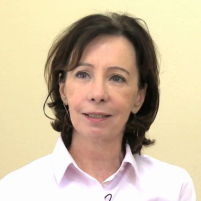 Maria Amalia Andery graduated with a degree in psychology in 1975 at the Catholic University of São Paulo. She received her master's degree in 1977 at the University of Manitoba (Canada) and her doctoral degree at the Catholic University of São Paulo. She is a full professor at the Catholic University of São Paulo and faculty member of the Graduate Program in Experimental Psychology: Behavior analysis. She serves on the editorial boards of Temas em Psicologia (Themes in Psychology) and Revista Brasileira de Análise do Comportamento (Brazilian Journal of Behavior Analysis). Her research interests include verbal behavior and the selection of cultures and cultural practices from a behavioral analytical perspective. Maria Amalia Andery graduated with a degree in psychology in 1975 at the Catholic University of São Paulo. She received her master's degree in 1977 at the University of Manitoba (Canada) and her doctoral degree at the Catholic University of São Paulo. She is a full professor at the Catholic University of São Paulo and faculty member of the Graduate Program in Experimental Psychology: Behavior analysis. She serves on the editorial boards of Temas em Psicologia (Themes in Psychology) and Revista Brasileira de Análise do Comportamento (Brazilian Journal of Behavior Analysis). Her research interests include verbal behavior and the selection of cultures and cultural practices from a behavioral analytical perspective. |
| EMMANUEL TOURINHO (Universidade Federal do Para) |
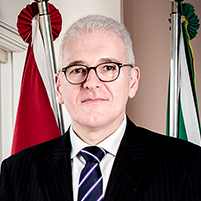 Emmanuel Zagury Tourinho is a Full Professor at the Federal University of Para, Brazil, where he conducts research and supervises students at the Pos-Graduation Program on Behavior Research and Theory. He is also currently the rector of the Federal Unversity of Pará. In the term of office 2017/2018 he was the President of the Brazilian National Association of Rectors of Federal Institutions of Higher Education (Associação Nacional dos Dirigentes das Instituições Federais de Ensino Superior - ANDIFES). His research work focuses on behavioral and cultural selection. Emmanuel Zagury Tourinho is a Full Professor at the Federal University of Para, Brazil, where he conducts research and supervises students at the Pos-Graduation Program on Behavior Research and Theory. He is also currently the rector of the Federal Unversity of Pará. In the term of office 2017/2018 he was the President of the Brazilian National Association of Rectors of Federal Institutions of Higher Education (Associação Nacional dos Dirigentes das Instituições Federais de Ensino Superior - ANDIFES). His research work focuses on behavioral and cultural selection. |
|
| |
| |
|
| Interdisciplinary Action Supporting Cultures of Social and Environmental Justice |
| Friday, October 9, 2020 |
| 3:30 PM–4:30 PM EDT |
| Online |
| Domain: Conceptual |
| Chair: Mark A. Mattaini (Jane Addams College of Social Work-University of Illinois at Chicago) |
| CE Instructor: Mark Mattaini, Ph.D. |
| Presenting Author: MARK MATTAINI (Jane Addams College of Social Work-University of Illinois at Chicago) |
| Abstract: This presentation will draw from and integrate concepts and data presented by invited speakers throughout this conference, exploring the promise and challenges of transdisciplinary efforts for pursuing a common core goal: sustainable, just, and reinforcing societies. To structure the material that follows, Dr. Mattaini will first outline and exemplify scientifically grounded, operational definitions of social and environmental justice and their interrelation. He will then review promising ecological approaches for supporting cultures striving to operationalize and realize such societies, and the cultural systems analytic methods from which such approaches emerge. Integrating material from the conference presentations, recent developments in the Behaviorists for Social Responsibility’s Matrix Project, and his earlier work in the book Strategic Nonviolent Power: The Science of Satyagraha, the speaker will explore examples of constructional community and social action, policy advocacy, and where necessary, civil disobedience. Given the structural realities present in contemporary societies, including the ethical challenges presented to professionals and scientists in situations of marginalization, inequity, and multiple forms of oppression, the presentation will end with a call for critical self- and collective reflection directed toward reshaping models of community and cultural analysis and intervention, and committing to the actions identified by that reflection. |
| Instruction Level: Intermediate |
| Learning Objectives: At the conclusion of the presentation, participants will be able to: (1) define social and environmental justice in operational terms; (2) explain the advantages of taking a constructional, transdisciplinary approach to social change; (3) identify at least three ethical challenges in efforts supporting social change, and responsible approaches for responding to those challenges. |
| |
| MARK MATTAINI (Jane Addams College of Social Work-University of Illinois at Chicago) |
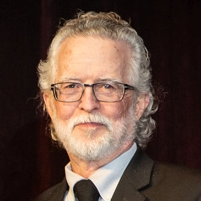 Mark Mattaini, DSW, ACSW, holds an emeritus appointment at Jane Addams College of Social Work, University of Illinois at Chicago (UIC), where he was previously director of the doctoral program. He has developed, implemented, and researched behavioral strategies for individual, family, organizational, community and policy level interventions in the US, Canada, and Latin America, increasingly emphasizing advocacy, accompaniment, and activism in recent years. Consistent with that emphasis, his recent scholarship has focused on nonviolent action supporting social justice, and behavioral systems science at the cultural level. He is a research affiliate of the UIC Center for Research on Violence, and has chaired 25 dissertations related to responses to social issues. Most of his Ph.D. graduates are engaged in research and practice with marginalized populations, including those victimized by—and perpetrating—violence, and in developing evidence-guided supports for young people experiencing homelessness and social exclusion. Dr. Mattaini is author or editor of 13 books, two of the most recent being Strategic Nonviolent Power: The Science of Satyagraha, and Leadership for Cultural Change: Managing Future Well-Being, as well as numerous other publications. Editor of the interdisciplinary journal Behavior and Social Issues, Dr. Mattaini has served on the editorial boards of multiple journals in behavior analysis and social work. ABAI Convention Program Board Coordinator from 2013-2017, he has also been a long-time member of the Board of Planners for Behaviorists for Social Responsibility, the oldest ABAI SIG. Mark Mattaini, DSW, ACSW, holds an emeritus appointment at Jane Addams College of Social Work, University of Illinois at Chicago (UIC), where he was previously director of the doctoral program. He has developed, implemented, and researched behavioral strategies for individual, family, organizational, community and policy level interventions in the US, Canada, and Latin America, increasingly emphasizing advocacy, accompaniment, and activism in recent years. Consistent with that emphasis, his recent scholarship has focused on nonviolent action supporting social justice, and behavioral systems science at the cultural level. He is a research affiliate of the UIC Center for Research on Violence, and has chaired 25 dissertations related to responses to social issues. Most of his Ph.D. graduates are engaged in research and practice with marginalized populations, including those victimized by—and perpetrating—violence, and in developing evidence-guided supports for young people experiencing homelessness and social exclusion. Dr. Mattaini is author or editor of 13 books, two of the most recent being Strategic Nonviolent Power: The Science of Satyagraha, and Leadership for Cultural Change: Managing Future Well-Being, as well as numerous other publications. Editor of the interdisciplinary journal Behavior and Social Issues, Dr. Mattaini has served on the editorial boards of multiple journals in behavior analysis and social work. ABAI Convention Program Board Coordinator from 2013-2017, he has also been a long-time member of the Board of Planners for Behaviorists for Social Responsibility, the oldest ABAI SIG. |
|
| |